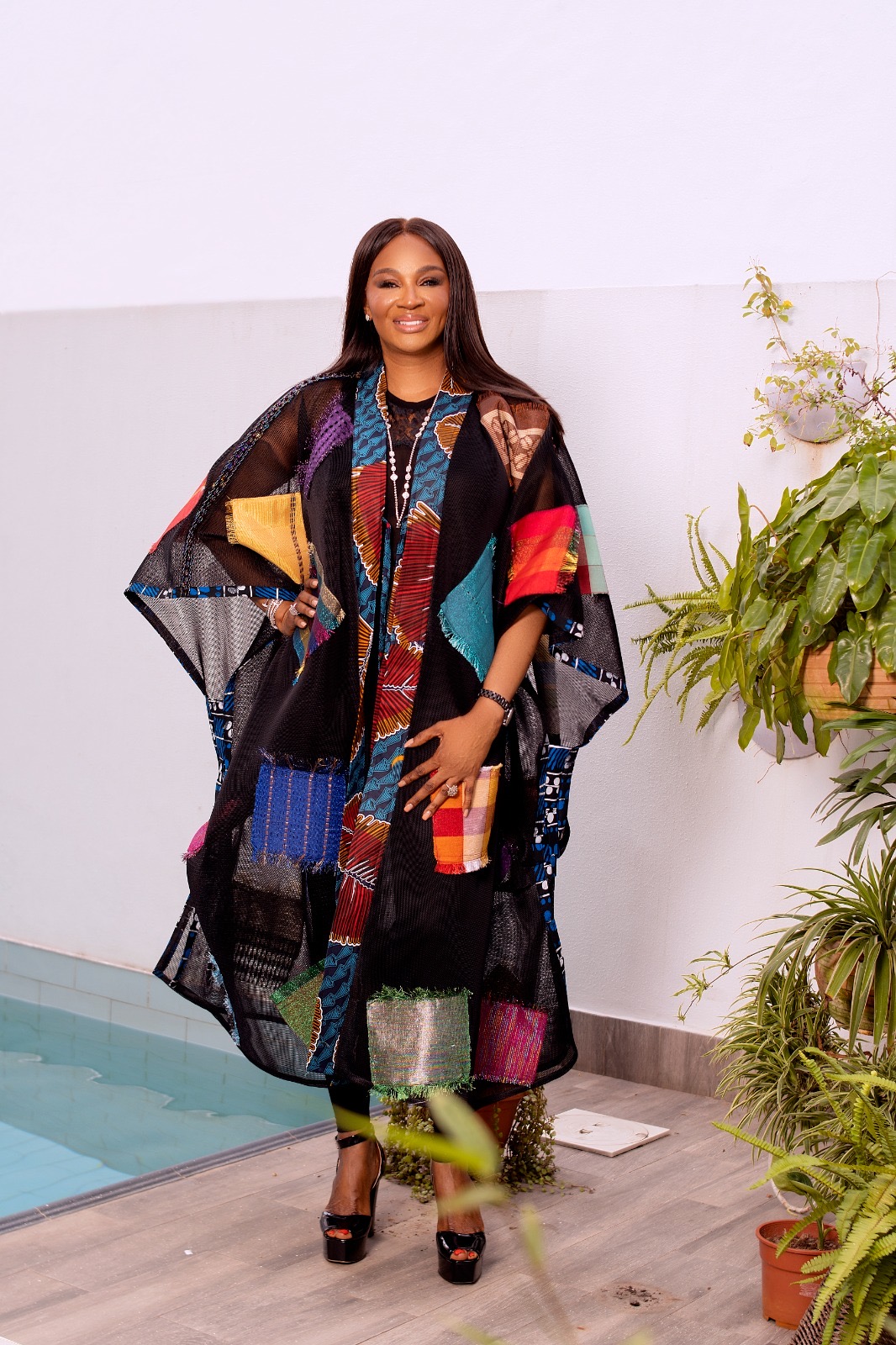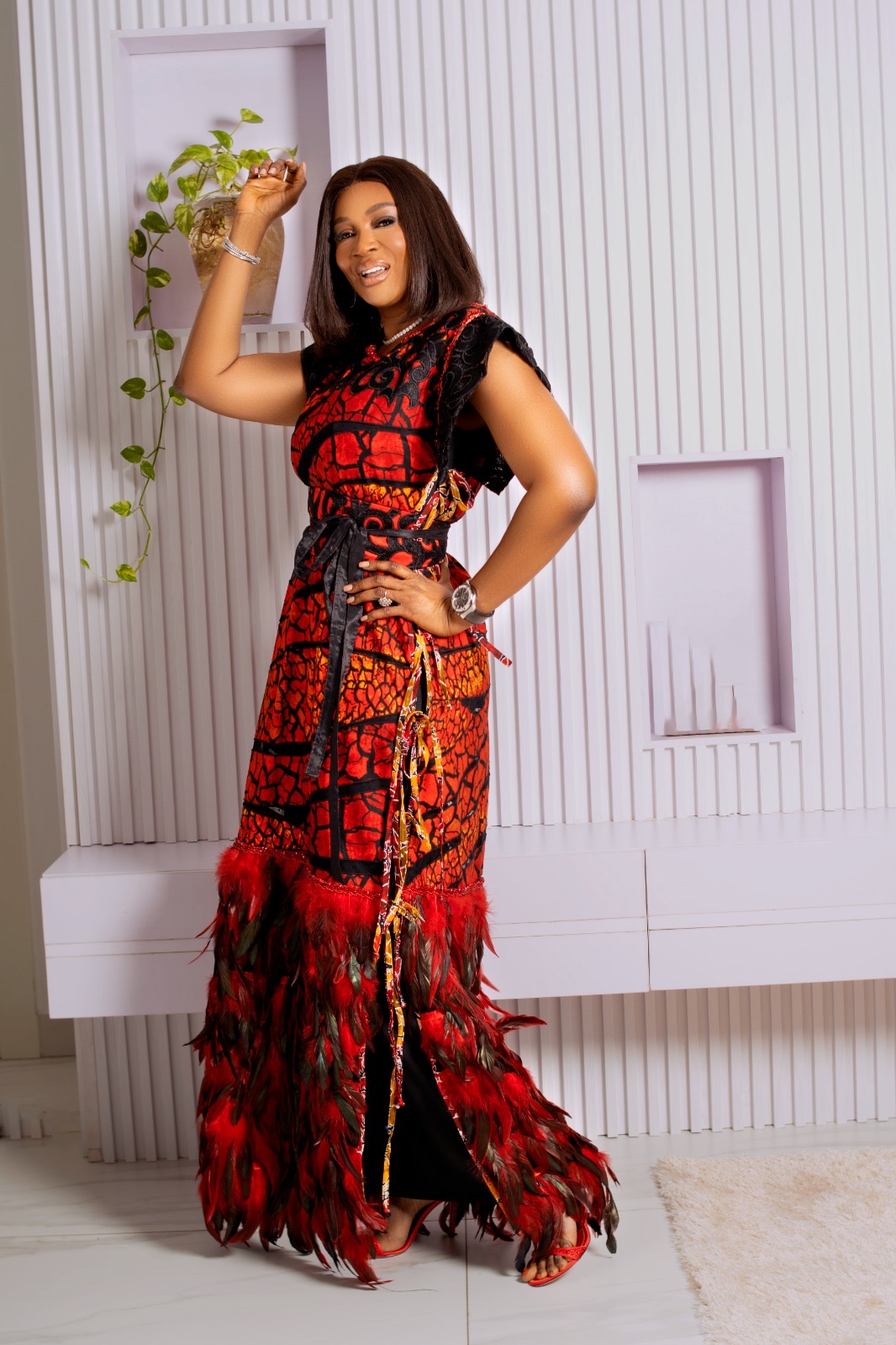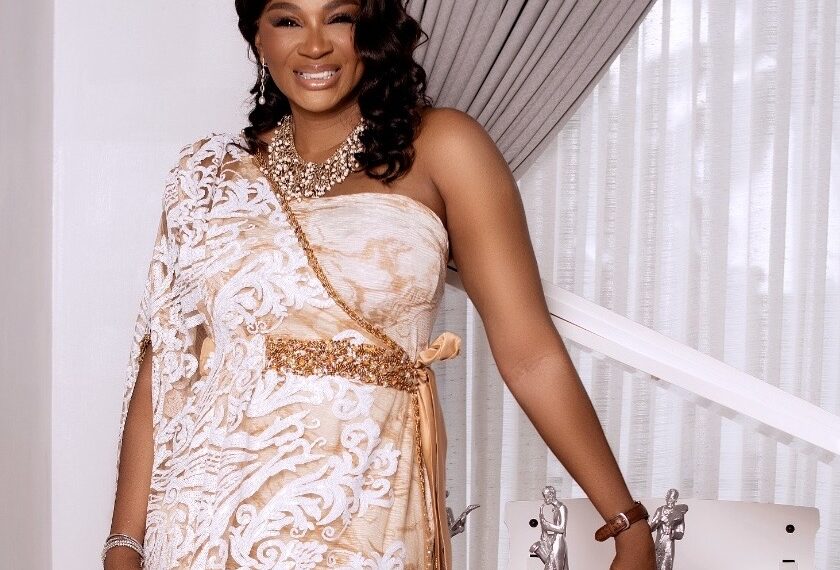Chioma Ude is a Nigerian entertainer and founder of the Africa International Film Festival (AFRIFF). In this interview, she speaks about how her early beginnings in the industry and how the Nigerian film industry, Nollywood, can get to the next level.
How did you achieve recognition as one of the most influential women in the Nigerian entertainment scene?
I’ve always had a passion for cinema. Everyone who knows me is aware of my deep love for films. My fascination began during my time in America, where I developed a keen interest in Nigerian cinema. Upon returning to Nigeria and entering the workforce, fate led me to cross paths with Emeka Mba during his Nigerian Film and Video Censors Board roadshow in London. Managing the logistics became my responsibility, and through this, I encountered the late Ms. Peace Anyiam-Osagie. Our bond grew, and she recognised my potential in supporting AMA when it was still in its early stages. I became involved, establishing a foundation within AMA and steering its operations for two years. Organising gala nights became a regular part of my role, each event dedicated to causes like sickle cell anaemia.
Subsequently, I connected with Katarina and Alaria, who sought a Nigerian project manager for an upcoming travelling film festival. My performance was highly praised. The governor and commissioner noticed my dedication, leading to an invitation to replicate this success on a larger scale for Nigeria. Contemplating its impact, I envisioned beyond Nigeria’s boundaries. Africa, a continent divided by foreign-imposed borders, inspired me to conceive an inclusive film festival for the entire continent rather than limiting it to Nigeria alone. My aim was to unite us through the powerful medium of film. And so, that marked the inception of this incredible journey.

Did you anticipate being in the creative industry, starting from marketing in school, then spending 10 years in healthcare, and now conquering the creative field?
As a child, I harboured aspirations to conquer the world. I possessed an unwavering belief that I could achieve anything. There was this innate sense within me that I could pursue any path I desired. Reflecting on my upbringing, I’m unsure how my parents instilled this confidence in me or if it stemmed solely from within. My childhood dreams were diverse — I aspired to become a doctor, and indeed, I gained entry into medical school. Marketing also intrigued me; I longed to explore numerous fields without constraints or limitations. My ambitions knew no bounds; I embraced the idea that I could dabble in everything. Music held a special place in my heart, although not as a singer; I envisioned myself as a backup dancer. This passion for music intertwined with my love for films, both influencing my childhood dreams profoundly.
Being a cinema enthusiast and having a favourite pastime of watching movies, what thoughts cross your mind when comparing creatives from Hollywood to those from Nollywood?
It’s imperative to elevate the storytelling of our indigenous narratives, ensuring they meet global standards of excellence. By presenting our stories in a manner that showcases their richness, we enable the world to appreciate their depth. The success of movies like Black Panther, Woman King, and The Black Book resonating in places like Korea underscores the universal appeal of these narratives. To truly advance our industry, we must adopt a proactive approach, scaling our efforts aggressively. Collaborating purposefully and strategically is key to surpassing our current achievements and reaching new heights.
How would you say the attitude of Nigeria is towards home (Nigerian) made movies?
It’s unfortunate that the current situation isn’t excellent. It’s not terrible, but there’s definite room for improvement. It’s crucial that we make deliberate investments in our own talents. Relying solely on validation from the Western world shouldn’t be our approach. Instead, we should take pride in our work and support it enthusiastically. This doesn’t imply avoiding honest critiques; in fact, the more engaged and involved we are, the greater the potential for growth within our industry.
How has the industry changed and what would you say they are doing differently?
In regards to Nollywood, what truly inspires my optimism is the resilience exhibited by its people. Nigeria is home to individuals with incredible determination. Our strength lies in our unwavering belief and the perseverance that follows. Nollywood’s foundation was laid upon sheer belief and the unyielding spirit of its creators, without much government support initially. Its continuous growth, evolution, and the thirst for knowledge within the industry are remarkable. With the government now involved, more corporations and organisations are joining the movement, indicating a promising trajectory for Nollywood’s ongoing expansion and development.
How would you describe your experience collaborating with creatives from different cultural background?
At the festival, I observed the admiration from Rwandans for our rapid production pace. Senegalese filmmakers, on the other hand, emphasise meticulous attention to detail, resulting in high-quality work but with fewer outputs. Contrary to Nigerians, they seemed slightly more relaxed. This divergence stems from the fact that Nigerian filmmakers often personally seek funding for their projects. In contrast, Senegalese filmmakers pursue grants, which involve a more elaborate application process, leading to these distinctions. I believe that if we exchange and adopt certain practices from each other, our respective industries will experience significant growth.

How do you envision the future of African-made movies?
Indigenous stories, global stage.
The Africa International Film Festival (AFRIFF) has trained over 10,000 young adults in film, TV hosting, and master classes with facilitators from across the globe; how were you able to achieve all of this?
The resilience I possess, coupled with the determination of the people, along with my team, sponsors and partners, contributed to the success of the film festival. We marketed the festival to the industry as belonging to them, fostering a sense of ownership. When something feels like it’s yours, there’s an inherent drive to nurture and sustain it. This ownership mindset has fuelled the festival’s growth and increased enthusiasm for participation each year. What sustains it is the evolving and expanding community it has become.
What is it about AFRIFF this year that captures your attention or stands out to you?
I’ll share what truly brings me joy. The most fulfilling aspect is witnessing the genuine enthusiasm from every demographic attending the festival. It’s not confined to any specific age group — whether young, middle-aged, or older; each participant discovers something remarkable at AFRIFF. Everyone finds their place, gains insights, and relishes the festival experience. To me, it’s the sense of community that we’ve cultivated over the years that stands out the most.
In what ways does AFRIFF collaborate with other industry stakeholders to foster a thriving ecosystem for filmmakers, actors, and other professionals in the entertainment sector?
The festival embodies a true essence of being “for the people, by the people, and of the people” within the Nigerian and larger African film industry. Collaborating with government bodies, ministries and dedicated corporations like Access Bank aligns with our shared goals. The vibrant AFRIFF community thrives on collective collaboration, where individuals converge, uniting to celebrate and craft moments of cinematic magic.
Considering the diverse culture and languages in Africa, how does AFRIFF approach the selection process to ensure a representation of the continent’s rich storytelling heritage?
Subtitles in films play a significant role beyond mere dialogue translation. They emphasise that cinema isn’t solely about spoken words but also about evoking emotions, stirring feelings, and leaving a lasting impact. Acting performances, the intricacies of set design, and various cinematic elements transcend language barriers. Language itself is a potent tool that evokes emotions, aiding actors in expressing the depth of their emotions. Nevertheless, subtitles effectively break the barrier imposed by language, enabling wider access to the emotional essence of a film regardless of linguistic differences.
What role do you believe film festivals play in shaping the narrative and promoting African talent on the global stage?
AFRIFF serves as a platform showcasing diverse African voices and stories that might otherwise go unnoticed. AFRIFF significantly contributes to the promotion of African talent on an international scale. By featuring the works of African filmmakers, actors, directors, and producers, the festival provides invaluable exposure. This exposure not only facilitates recognition but also opens doors to distribution deals and collaborations with global industry players, amplifying the reach and impact of African cinema. The festival also serves as a catalyst for cultural exchange and understanding. AFRIFF facilitates the appreciation and understanding of African cultures worldwide.
Furthermore, AFRIFF acts as a hub for networking and collaboration within the film industry. The festival brings together industry professionals, creating opportunities for networking, partnerships, and collaborations. These connections often lead to co-productions, international collaborations, and increased investments in African cinema, further bolstering the industry’s growth. Finally, AFRIFF’s educational initiatives, including workshops, panels and seminars, provide invaluable opportunities for emerging filmmakers. These initiatives nurture talent, hone skills, and encourage creativity, contributing to the development and expansion of Africa’s film industry by empowering the next generation of storytellers.
Do you have any favourite film, or actor, or filmmaker from this year?
Blossom Chukwujekwu. He killed it in Genevieve’s ‘I Do Not Come To You By Chance.’ Awesome production.



